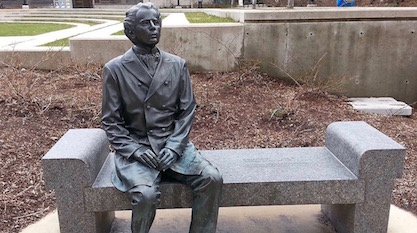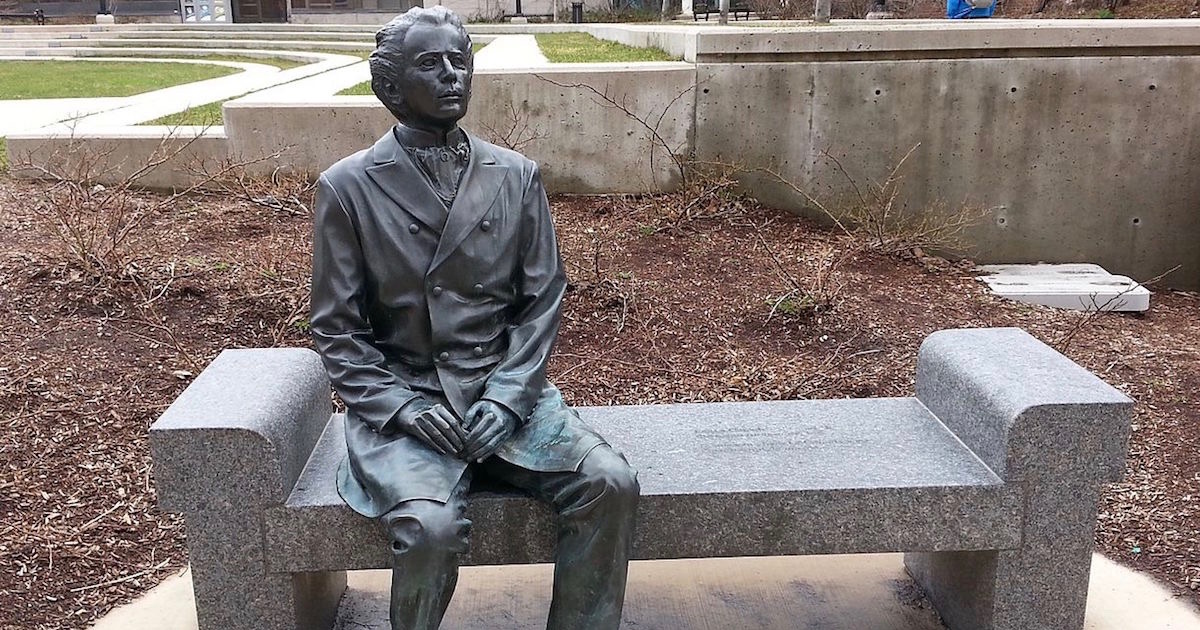 Education
Education
 Free Speech
Free Speech
Free Speech or “Better Speech”?


I thought that nearly all democratically minded Western citizens liked the idea of free expression – even if they don’t like all of its results in practice. But the president of Canada’s Wilfrid Laurier University (WLU) thinks there is a value superior to free speech. She calls it “better speech.” What’s that?
In the wake of the public relations crisis that was the Lindsay Shepherd situation, Laurier took action. I wrote earlier on the WLU statement on free speech — that affirmation was encouraging to me. But a recent article by the president clarifies the picture a little, and not in a good way: it seems WLU is trying to promote free speech without actually doing anything.
Denyse O’Leary Responds
An alumna of WLU and frequent contributor to Evolution News, Denyse O’Leary, has contacted me about this story. The university asked her and other graduates about the statement on freedom of expression. Denyse submitted the following:
Comment for WLU Task Force on Freedom of Expression
Thank you, Task Force on Freedom of Expression, for asking for input. I am an alumna (English Language and Literature, ’71). I read about what happened to Lindsay Shepherd with interest and concern. As I have explained, back then, even though WLU was a religiously affiliated university, it was a much freer environment intellectually — because that is who the teachers and students WERE in those days. See [LINK].
No statement of principles creates free people. For example, “Laurier challenges the idea that free expression and the goals of diversity, equity, and inclusion must be at odds with one another.” Excuse me but that’s well-intentioned nonsense. Some people will only feel included when others are excluded. You must choose to exclude either them or the people they object to.
I could go on, but as you are probably already awash in verbiage, let me spare you time by asking two things. Under your proposed new policies:
1. Would students be allowed to organize a pro-life group, as they were in my day, even if some other students felt distressed and offended? Or — assuming you can weather the latter group’s angst — would you shut the pro-life group down on the grounds that there might be crime or vandalism, thus conceding your turf to criminals and vandals?
2. When I attended WLU, one of my profs asked me to read Victorian pornography, on behalf of the class. She felt that, to understand how the high Victorian era tipped so swiftly into the Decadent era, one must get at least some sense of the unofficial literature of the period. She prudently picked me (a bookish young woman) because period pornography wouldn’t likely interest me much. But she wanted me to convey some sense to my classmates of the things that Victorians did but never discussed publicly. Yes, that literature was offensive. But it was most instructive in interpreting the post-Victorian social environment.
So, now to my second question: In terms of the risk of offending a student, my prof did what Lindsay Shepherd did. Except for one thing: My prof faced no hell storm of abuse from her superiors at the university. Why should she? In those days, a degree in English Language and Literature signified that one was capable of handling a good deal of “offensive” material that is part of the development of the language, literature, and culture. My degree was not envisioned as a reward for completing therapy. Even if I didn’t like starched doily porn much, I would never have considered complaining. That would be like a firefighter complaining that out-of-control fires can be dangerous.
Under your new policies, would it once again be safe for a WLU prof to assign reading or viewing that might “offend” a student?
Intellectual freedom has always cost a lot, sometimes people’s lives. The decades post-WWII were easy. But now, those who need the life of the intellect are back to fighting for it again. Over the next few years, I will have the opportunity to find out where you really stand by what you actually do when challenged again. Godspeed.
Denyse O’Leary, Ottawa-based author, blogger, and journalist
Hmm. O’Leary isn’t satisfied with pretty words. What will WLU do when another sticky situation like Shepherd’s presents itself?
“Better Speech”
WLU president Deborah MacLatchy published a piece in the Globe and Mail. Here’s the title: “Not merely free speech, but better speech needs to be protected on campus.” That sounds…weird. Here is part of what she says:
Universities exist to create, preserve, apply and pass on knowledge. We have a responsibility to ensure our students recognize the importance of free speech in the pursuit of knowledge. Speech is the path to learning what others think and believe, so that we can learn from each other.
Universities are also beacons of opportunity and serve as springboards for intellectual, social and economic mobility. Our institutions must respect the dignity of those who come to our campuses to study, research and teach. To do so, we strive to create campus environments that support human rights for everyone.…
In the face of language that threatens the humanity of our students, staff or faculty, we must continually promote better speech. This means questioning and challenging opinions with sound arguments and evidence. Students and faculty must be able to share views and experiences while simultaneously committing to high ethical and intellectual standards for open, constructive conversations.
It’s strange to bring “human rights” into a discussion like this, or “language that threatens the humanity of our students.” We’re not talking about war zones; we’re talking about lectures and long hours in the library and tests and research papers. Furthermore, free speech by its very nature is supposed to extend to all people.
Good Intentions
Finally, it is unclear how the following approach would be interpreted in a real situation:
A university’s commitment to better speech demands a long-term focus on creating environments — both inside and outside of the classroom — where meaningful dialogue, not individual platforms, is the norm. One approach to ensure we uphold a high standard of discourse on our campuses is to practice inclusive freedom, a concept proposed by political philosopher Dr. Sigal Ben-Porath of the University of Pennsylvania. Inclusive freedom involves a vigorous commitment to free speech, coupled with the assurance that all individuals have an opportunity to engage in free expression, inquiry and learning.
Over the past few years, inflammatory debate and rhetoric have taken centre stage in the conversation surrounding free speech on university campuses across North America. From Berkeley to Laurier, the media have covered incidents of controversial speakers and ideological clashes on campus. Speech that denigrates the dignity and humanity of members of society is challenged at universities because our communities fully engage in free expression.
Through practicing and emphasizing better speech, we can confront controversial views with intellectually rigorous and constructive dialogue. Sometimes the ideal of debate cannot happen in real time. Organizing alternative programming, inviting speakers to express opposing views and/or engaging in non-violent protests are strategies that contribute to a campus that values inclusive freedom.
In the face of increasing polarization in society, universities must be a stabilizing force. We must set the bar for how people with very diverse perspectives can engage in difficult discussions. The real exchange of ideas takes place in an atmosphere that both respects experiences and is grounded in evidence and scholarship.
It is very difficult to anticipate what kinds of protections scholars and scientists like those featured at the Free Science website would find at WLU. MacLatchy’s words don’t reassure me, because it seems that UNLESS university officials commit their institution to free speech, unreservedly, they are likely to waffle when a controversy, like the one over evolution, comes around.
Good intentions only go so far. As Rex Murphy at the National Post puts it in his response to MacLatchy’s article, “Free speech is not better speech. It is the best speech.” What Denyse O’Leary calls “well-intentioned nonsense” will protect no one that needs protecting.
Photo: Sculpture of Wilfrid Laurier, campus of Wilfrid Laurier University, by Laurel L. Russwurm [CC BY 2.0], via Wikimedia Commons.
